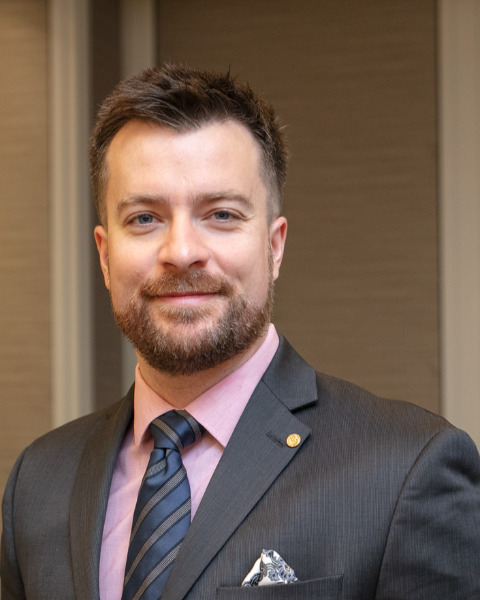Back
CANADIAN CARDIOVASCULAR SOCIETY
CAD GENERAL
CCS
CCC
IDEA
PREV
WOMEN'S HEALTH
CCC 2023 FEATURED RESEARCH AND ABSTRACT AWARD
ATRIAL FIBRILLATION RECURRENCE IN PATIENTS WITH TRANSIENT, NEW-ONSET ATRIAL FIBRILLATION DETECTED DURING HOSPITALIZATION FOR MEDICAL ILLNESS OR NON-CARDIAC SURGERY: A PROSPECTIVE, MATCHED COHORT STUDY (CCC-172)
Saturday, October 28, 2023
10:35 – 10:45 EST
Location: Palais, 524AB
Target Audience: Epidemiology, Rhythm

William F. McIntyre, MD FRCPC
Cardiac electrophysiology
McMaster University
McMaster Unviersity
Presenter(s)
Disclosure(s):
William F. McIntyre, MD PhD FRCPC: No relevant disclosure to display
Background: Atrial fibrillation (AF) is often detected for the first time in patients who are hospitalized for non-cardiac illness or surgery. Many clinicians consider AF in this setting to be temporary and reversible and therefore not requiring long-term oral anticoagulation. We aimed to estimate the 1-year rate of AF recurrence following hospital discharge among patients with new-onset AF during a hospitalization for non-cardiac surgery or medical illness, compared to a matched population without AF.
METHODS AND RESULTS: We recruited two cohorts of patients, hospitalized for non-cardiac surgery or medical illness, respectively, with transient new-onset AF (cases) from three academic hospitals. For each case, we recruited an age and sex-matched control without any history of AF, from the same hospital ward. All study participants left hospital in sinus rhythm. Cases and controls wore a 14-day ECG monitor at 1 and 6 months. The primary outcome was AF lasting at least 30 seconds, or captured on a 12 lead ECG, occurring after hospital discharge. Total follow up was 12 months.
We enrolled 139 cases (70 medical and 69 surgical) and identical numbers of matched controls. Participants had a mean age of 71+10 years, a mean CHA2DS2-VASc score of 3.0+1.5 and 59% were male. AF had a median of 15.8 (interquartile range [IQR] 6.4-49.6) hours of AF during the index hospitalization. Upon discharge, 49.6% received oral anticoagulation. After 1 year, AF was detected in 33.1% (95%CI 31.9-34.2%) of cases and 5.0% (95%CI 4.2-5.3%) of controls (odds ratio [OR] 10.8, 95%CI 3.9-30.0, p < 0.0001). Similar results were seen for both medical (28.6% (95%CI 28.6-30.1%) versus 2.9% (95%CI 1.9-3.3%), OR 19.0 (95%CI 2.4-141.9, p < 0.0001) and surgical illness (37.7% (95%CI 36.0-39.3%) versus 7.2% (95%CI 6.0-7.9%), OR 8.0 95%CI 2.4-26.6, p < 0.0001). The median duration of AF detected in case participants during follow-up was 7.9 (IQR 1.8-45.0) hours.
Conclusion: Among patients who experience transient new-onset AF during a hospitalization for non-cardiac surgery or medical illness, approximately 1 in 3 will have recurrent AF within one year. This high rate of recurrence indicates that AF detected during hospitalization should not automatically be considered as reversible.
METHODS AND RESULTS: We recruited two cohorts of patients, hospitalized for non-cardiac surgery or medical illness, respectively, with transient new-onset AF (cases) from three academic hospitals. For each case, we recruited an age and sex-matched control without any history of AF, from the same hospital ward. All study participants left hospital in sinus rhythm. Cases and controls wore a 14-day ECG monitor at 1 and 6 months. The primary outcome was AF lasting at least 30 seconds, or captured on a 12 lead ECG, occurring after hospital discharge. Total follow up was 12 months.
We enrolled 139 cases (70 medical and 69 surgical) and identical numbers of matched controls. Participants had a mean age of 71+10 years, a mean CHA2DS2-VASc score of 3.0+1.5 and 59% were male. AF had a median of 15.8 (interquartile range [IQR] 6.4-49.6) hours of AF during the index hospitalization. Upon discharge, 49.6% received oral anticoagulation. After 1 year, AF was detected in 33.1% (95%CI 31.9-34.2%) of cases and 5.0% (95%CI 4.2-5.3%) of controls (odds ratio [OR] 10.8, 95%CI 3.9-30.0, p < 0.0001). Similar results were seen for both medical (28.6% (95%CI 28.6-30.1%) versus 2.9% (95%CI 1.9-3.3%), OR 19.0 (95%CI 2.4-141.9, p < 0.0001) and surgical illness (37.7% (95%CI 36.0-39.3%) versus 7.2% (95%CI 6.0-7.9%), OR 8.0 95%CI 2.4-26.6, p < 0.0001). The median duration of AF detected in case participants during follow-up was 7.9 (IQR 1.8-45.0) hours.
Conclusion: Among patients who experience transient new-onset AF during a hospitalization for non-cardiac surgery or medical illness, approximately 1 in 3 will have recurrent AF within one year. This high rate of recurrence indicates that AF detected during hospitalization should not automatically be considered as reversible.
